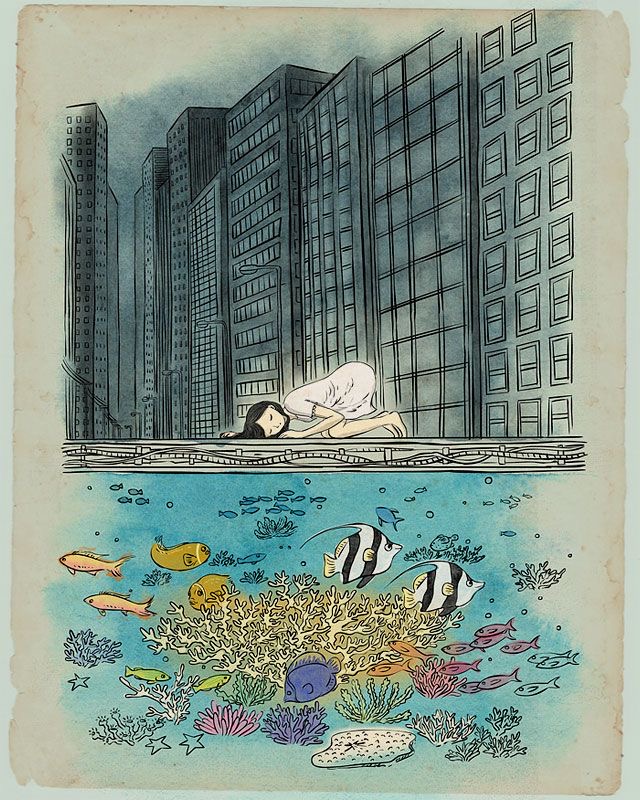Feeling overwhelmed by school, social life, and the sheer volume of thoughts buzzing in your head? Or perhaps you're looking for a creative outlet, a secret space to explore your ideas and feelings? Look no further than the humble diary—a powerful tool that’s been cherished by thinkers, artists, and everyday individuals for centuries.
More than just scribbling down daily events, diary writing is a profound exercise in self-discovery, creativity, and personal growth. The scientific study says positive journaling gives profound impact on your life. It contributes to your mental health and overall well-being and boosts mood. And in today's digital age, it’s easier than ever to start!
Unleash Your Inner Storyteller: The Ultimate Guide on How to Write Diary
How often should I write in my diary? Do I have to write every day?
Absolutely not! While "diary" often implies daily, the best frequency is whatever works for you. Some days you might have a lot to say, other days just a few lines. The key is consistency over quantity.
What should I write about if nothing "exciting" happened?
You don't need dramatic events to fill your diary! The most profound entries often come from reflecting on the "ordinary."
Is it okay if my diary entries are messy, unorganised, or full of mistakes?
YES! In fact, that's the whole point! Your diary is your private space, not a graded assignment.
How do I keep my diary private and secure from others?
Online Journals (like MemoirDiary.com): This is where digital excels! Choose a reputable platform that offers:
Using an online platform often feels more secure than a physical book that can be misplaced or discovered.
Strong Password Protection: Use a unique, complex password.
Encryption: Ensures your data is scrambled and secure.
Privacy Settings: Check that your entries are set to private by default.
Can diary writing really help me with school or my future?
Absolutely! While it might feel personal, the skills you develop through diary writing are highly transferable and beneficial for both academics and life.

Let's dive into everything students need to know about diary writing, from the basics to why platforms like MemoirDiary.com are your new best friend.
What is diary writing anyway?
At its core, diary writing is the practice of regularly recording your thoughts, feelings, experiences, and observations in a private space. It’s a personal conversation with yourself, a candid record of your journey. Unlike a school essay, there are no right or wrong answers, no grades, and no judgement. It's just you, your thoughts, and the page.
Why Should Students Keep a Diary? The Amazing Benefits!
You might think diary writing is just for historical figures or angsty teenagers (think Adrian Mole!). But the benefits for students are immense and surprisingly practical:
- Boosts Self-Awareness: Understanding your own emotions, reactions, and thought patterns is crucial for mental well-being and maturity. A diary helps you track how you feel and why.
- Improves Writing Skills: Regular writing, even informal, strengthens your vocabulary, sentence structure, and descriptive abilities. This directly translates to better essays, reports, and communication.
- Reduces Stress and Anxiety: Pouring out your worries onto paper can be incredibly therapeutic. It helps you process difficult emotions, identify problems, and even find solutions.
- Enhances Memory: Ever forget what you did last week? Your diary becomes a personal archive, helping you remember important events, lessons learnt, and even funny moments.
- Fosters Creativity: A diary is a safe space for brainstorming ideas, developing characters, sketching stories, or even writing poems. It's your personal creative playground.
- Develops Problem-Solving Skills: By articulating challenges in your diary, you can gain clarity and often find new perspectives or solutions you hadn't considered.
- Tracks Progress: Whether it's academic goals, personal habits, or creative projects, a diary allows you to see how far you've come over time.
Diary Format: No Strict Rules, But Here’s a Common Structure
The beauty of a diary is its freedom! There's no single "correct" format, but here's a common structure that you many find helpful. You can use date, dear friends (if you are writing online), To my self, etc. You also have to remember to leave your post having good sign-off that left unfinished. May be interested task that you are going to finish next day or time that keep you inspire to write. Know the important aspect of diary what all that should be including,
- Date and Time: Always start with the current date (and time, if you wish). This anchors your entry in time.
- Example: May 24, 2025, 8:30 PM
- Salutation (Optional): Many people like to address their diary, like a trusted friend.
- Example: Dear Diary, My Journal, To My Confidant, Hey Me, Self...
- Opening Statement: A quick summary of your mood or the main event of the day.
- Example: "Today was a rollercoaster..." or "I'm feeling really reflective tonight."
- The Body: This is where you write freely.
- Events: What happened today? Who did you talk to? What did you do at school?
- Thoughts: What are you thinking about? Ideas, questions, observations.
- Feelings: How did those events or thoughts make you feel? Explore your emotions.
- Reflections/Lessons: What did you learn? What would you do differently? What are you grateful for?
- Future Hopes/Plans: What are you looking forward to? What do you want to achieve?
- Closing (optional): A brief sign-off.
- Example: Until tomorrow. That's all for now. Sleep well, your friend.
Diary Topics & Ideas for Students: Never Run Out of Things to Write!
Stuck on what to write? Here are endless ideas for your diary entries, including day-to-day good and bad parts of the day. Note: When you write about gratitude, do not talk about the negative side of the story.
Personal & reflective:
- How was your day, really? What was the best/worst part?
- What are you grateful for today?
- What challenges are you facing at school or with friends? How do you feel about them?
- Write about a dream you had.
- Describe your emotions right now. Why do you feel that way?
- What's something new you learnt today?
- Reflect on a recent conversation or argument.
- What are your goals for tomorrow, next week, or this year?
- Write a letter to your future self.
- What's a fear you have? How does it affect you?
Creative and Imaginative:
- Describe your ideal day in vivid detail.
- Create a character and write a short scene with them.
- Write a poem about something you saw today.
- Imagine you have a superpower. What is it, and how do you use it?
- Describe a place you love using all five senses.
- Write a fictional dialogue between two unexpected characters.
- Brainstorm ideas for a story, a project, or even a new invention.
School & Academic:
- What was the most interesting thing you learnt in class today?
- Which subject is challenging you most, and why?
- Reflect on a recent test or assignment. What went well? What could be improved?
- Write down questions you have about a topic you're studying.
- Plan out your study schedule for the week.
- Describe your ideal learning environment.
Types of Diaries You Can Keep:
- Daily Diary: The most common type, recording day-to-day events and feelings.
- Gratitude Journal: Focuses solely on things you are grateful for.
- Dream Journal: Records dreams immediately after waking up.
- Travel Journal: Documents experiences, observations, and feelings during a trip.
- Bullet Journal: A customisable system for planning, tracking, and journaling (often with a creative flair).
- Reading Journal: Notes and reflections on books you've read.
- Project Journal: Tracks progress, ideas, and challenges for a specific project.
Why Online Journaling (Like MemoirDiary.com) is a Game-Changer for Students and experience writers
While a physical notebook has its charm, online journaling platforms offer unique advantages, especially for students.
- Accessibility & Portability: Write anywhere, anytime—on your phone, tablet, or computer. No more forgetting your notebook! Your diary is always with you.
- Privacy & Security: Reputable online platforms offer password protection and encryption, keeping your thoughts safe from prying eyes (unlike a physical diary that can be easily found or lost).
- Searchability: Quickly find old entries by date, keyword, or tag. Imagine instantly finding that thought you had last year about your career goals!
- Multimedia Integration: Add photos, links, or even audio notes to your entries, making them richer and more dynamic.
- Organisation: Categorise entries by theme (e.g., "School," "Friends," "Feelings"), tag them, or organise by date, making it easy to browse your journey.
- No Limits: Never run out of pages! Online journals offer unlimited space for your thoughts.
- Less Intimidating: For some, a blank digital page feels less daunting than a pristine physical notebook. You can easily edit or delete without "ruining" a page.
- Eco-Friendly: Reduces paper consumption.
- You can create your own diary where all the thoughts and reflections are on one page. eg: memoirdiary.com/diary/author/michael-jackson/ where all the entries will be found.
At MemoirDiary.com, building a space where you can securely and creatively cultivate your personal narrative. Read others reflections, it's designed to be intuitive, and inspiring—the perfect digital companion for your journaling journey.
Start Your Diary Today!
Whether you choose a classic notebook or a modern online platform, the most important step is to simply begin. Dedicate a few minutes each day, or even a few times a week, to jot down your thoughts. You'll be amazed at how quickly your diary becomes an indispensable tool for self-discovery, creativity, and navigating the exciting adventure of being a student.
Your story is worth telling. Start writing it today!



















